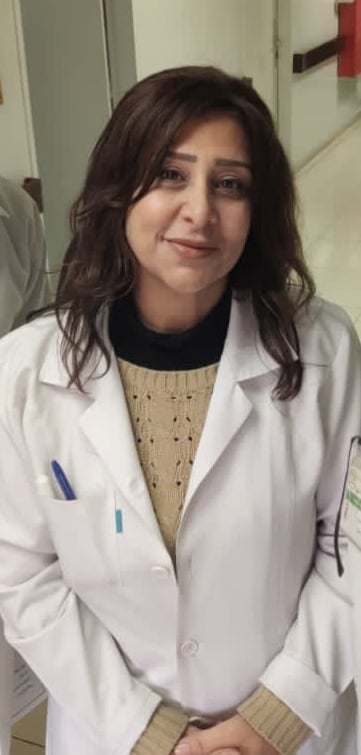
Prof. Hala WANNOUS
Consultant of Pediatric Nephrology.
She obtained her Master Degree in Pediatrics from Damascus University, Children’s University Hospital, Damascus, Syria, AFSA (Attestation de Formation Specialisee Approfondie) in Pediatrics from Denis Diderot – Paris 7 University, Paris, France, and DIU (Diplome Inter-Universitaire) in Pediatric Nephrology from Rene Descartes – Paris 5 University, Paris, France.
Prof. WANNOUS is currently Head of the Department of Pediatric Nephrology, Hemodialysis, and Kidney Transplantation at Children’s University Hospital in Damascus, Professor-Faculty Member in Faculty of Medicine – Damascus University.
She is the chairperson of the scientific committee of the Syrian Society of Nephrology and Hypertension, and the representative of the Syrian Society of Nephrology and Hypertension at the Middle East Regional Board of the International Society of Nephrology (ISN).
Prof. WANNOUS is a speaker at national and international meetings.
She has also published articles in the field of pediatric nephrology in peer-reviewed journals.
Pediatric kidney transplantation in under-resourced country: A single center experience
Hala Wannous1.
1Pediatric Nephrology, Hemodialysis and Kidney Transplantation, Faculty of Medicine- Damascus University- Children's University Hospital, Damascus, Syrian Arab Republic
Background: Kidney transplantation is the optimal method for managing children with end-stage kidney disease. This study aimed to present the experience and results of pediatric kidney transplantation program at our center.
Methods: A single-center observational study was conducted at Children’s University Hospital in Damascus, Syria. We reviewed the medical charts of all kidney transplants performed between April 2018 and December 2022. All patients were under 14 years old when they underwent kidney transplant. All donors were living as there is currently no effective deceased donor program in Syria.
Results: From April 2018 to December 2022, a total of 33 kidney transplants have been performed at our center. The majority of our recipients was male (24/72.7%) with 9 female recipients (27.3%); median age was 10 years (range: 4.5–14 years). Most frequent underlying diseases for kidney failure were renal dysplasia-hypoplasia (42.5%), reflux nephropathy (18.2%), neurogenic bladder with posterior urethral valves (12%). In 10 patients, kidney transplantation was performed pre-emptively (30.3%). Initial graft function was observed in all grafts (100%). During observation time (5 years), 28 patients (85%) had an adequate graft function till now. The 1- year graft and patient survival rates were 91%.
Conclusions: Syria is still suffering from the consequences of the war, affecting organ transplantation in many ways. The good one-year graft and patient survival in our center was encouraging. However, we admit that the number of patients was small and the follow-up duration was also not long enough, and we need future researches for improving long-term outcomes.
[1] Kidney transplant
[2] Kidney failure
[3] Children’s Hospital
[4] Syria
[5] Damascus
[6] Graft survival
[7] Patient survival
